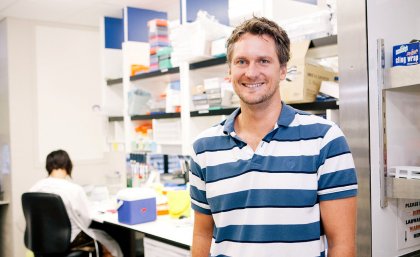
Researchers have identified the process that shuts down the human heart’s ability to heal itself, and are now searching for a drug to reverse it.
University of Queensland’s Dr James Hudson and Murdoch Children’s Research Institute researcher Dr Enzo Porrello have shown a metabolic pathway governs the loss of the heart’s proliferative capacity.
“A switch in a newborn’s metabolism means this ability to regenerate heart tissue disappears, usually within a week,” Dr Hudson said.
“Now we have identified the process that causes this to occur, we believe there could be an opportunity to reactivate regeneration in adult hearts.”
The research also involved collaborators from AstraZeneca in Sweden, the University of Sydney and the University of Melbourne.
Dr Hudson’s team is now working with a company to identify drugs that could re-activate the heart’s ability to self-repair.
“That would mean a heart could repair muscle damage caused from a heart attack, and recover its full capacity to pump blood around the body,” Dr Hudson said.
The research was performed in engineered human heart tissues grown from stem cells in the Cardiac Regeneration Laboratory at UQ’s School of Biomedical Sciences.
It follows a study which mapped cell pathways in mouse hearts.
“We undertook profiling to separate the different cell populations and pathways, in hearts with regeneration capacity and those without,” Dr Hudson said.
“This highlighted the metabolic pathway we focused on in our latest research.”
About 54,000 Australians suffer a heart attack each year, with an average of about 23 deaths every day.
The research was published in PNAS and Circulation.
The UQ research has been supported by the National Health and Medical Research Council (NHMRC), the National Heart Foundation, and Stem Cells Australia.
Dr Hudson was this month awarded the 2017 Centenary Institute Medical Innovation Award for his cardiac regeneration research.
Media: Dr James Hudson, j.hudson@uq.edu.au; Kim Lyell, k.lyell@uq.edu.au, +61 427 530647.


